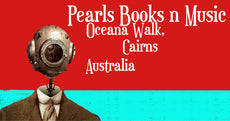
🔴 Condition - Good 🔴
'There is a word for what Darwin and the rest of us have felt when in the presence of the reef: 'awe.' Confronted with the reef, awe is the most appropriate response. It is probably in our nature. It is also, apparently, in our nature to destroy that which we hold in awe.' --from The Enchanted Braid Of the myriad ecosystems populating the underwater world, coral reefs are by far the most complex. While their stunning beauty has been extolled for centuries, the intricate workings of reef environments remained largely hidden from view. In fact, until the advent of scuba diving just fifty years ago, corals have been among the last natural histories to be extensively explored. The high passion with which scientists have greeted this particular investigation --beginning with the foundational theories of Charles Darwin in 1842--is perhaps unprecedented, but hardly difficult to understand. A phenomenon of both awesome beauty and vital importance, the coral reef is home to the most diverse range of species of any environment on the planet, including fish, shrimps, worms, snails, crabs, sea cucumbers, sea stars, urchins, anemones, and sea squirts. The crux of reef life, scientists have discovered, lies in nature's most intimate example of symbiosis: the mutually beneficial relationship between the coral polyp and its 'tenant,' the zooxanthellate algae. Davidson's history begins with this deceptively diminutive hybrid, the engine behind the construction of the limestone-based coral structure. Together, the three elements comprise a unique zoophytalite (animal-plant-mineral) form, or an 'enchanted braid.' Aided by an eight-page, full-color photographic insert demonstrating the incredible intricacies of the reef and its unique inhabitants, The Enchanted Braid identifies the approximately 240,000 square miles of coral reef on the planet today as indispensable not only to the livelihood of the oceans but also to humans. The reef is, after all, the 'soul of the sea,' the spawning ground for tens of thousands of marine species. As sources of food (many islands rely on reefs for all their protein), medicine (corals are used in bone grafts and to fight cancer and leukemia), and detailed insight into the history of climatic conditions, coral reefs are critically important to human life on Earth. However, in a world of oil tanker disasters, global warming, and dwindling natural resources, they are also in grave danger of extinction. Osha Gray Davidson's urgent clarion call to halt today's man-made degradation of coral reefs is both alarming and persuasive, effectively underscored by the rich historical context of passages from Darwin's captivating diary of his seminal work on reefs 150 years ago. Like the coral reef, The Enchanted Braid is itself a rare hybrid, a graceful combination of aesthetic appreciation, scientific inquiry, and environmental manifesto.
Translation missing: en.general.search.loading
